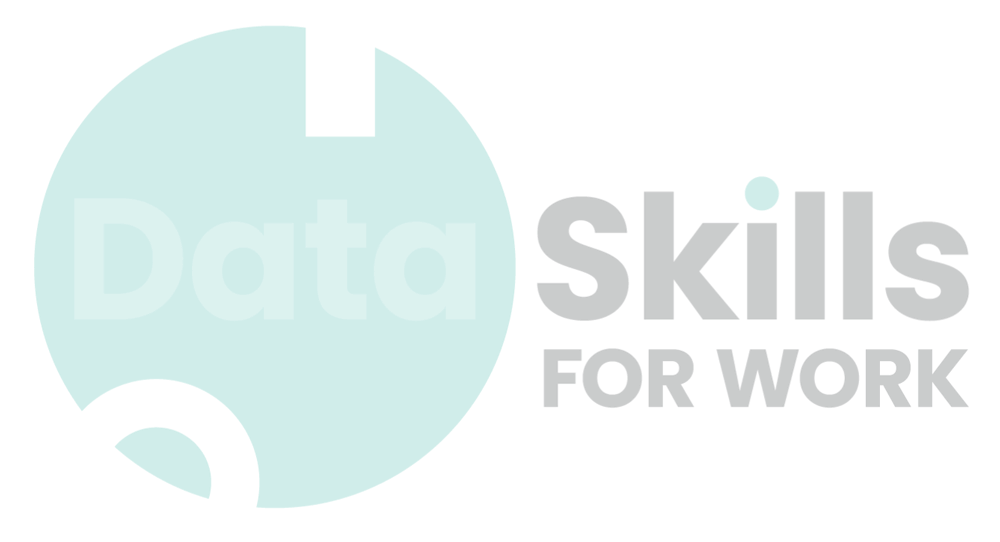Framework: Data personas
We define our framework across four data personas, which align with levels of data literacy. Personas are designed to help identify the skills you might need as an individual, or as an employer. In some cases, particularly in smaller organisations, one person can sit across multiple personas. We all need to have data citizen level skills as a baseline.
Data citizens
There is a societal need to educate data citizens about how data impacts their everyday lives on topics such as how personal data is processed by companies, individuals’ rights with respect to data and the wider societal implications of data and automation within a democracy.
We want to ensure every citizen will have the opportunity to learn about how their personal data is used, their legal rights and privacy implications.
WHO
Can identify what data is collected about them and where it is stored. Understand how personal data is processed by companies, their individual rights with respect to data, and the wider societal implications of data and automation within a democracy. For example customers, employees, patients.
SKILLS
Can identify what data is collected about them and where it is stored. Are aware of and can make use of open data. Are able to contribute to the ongoing discussion and evolving definition of data citizenship.
Data workers
The data worker is in demand. Such workers can apply basic knowledge of statistics, programming and / or analysis software to generate and interpret datasets from their organisation to answer questions, target markets and develop business models.
We want to ensure every citizen can move from being Data Citizens to Data Workers if they choose through additional education or training.
WHO
Those required to collect, store, manage and analyse data as part of their job, but whose primary job function is outside the field of data. For example, managers, technicians and clerical support workers.
SKILLS
Must be proficient in interpreting and visualising structured and unstructured data, and familiar with emerging database technologies to support analysis and decision-making processes. Includes basic knowledge of statistics, programming and analysis software.
Data professionals
As the global competition for digital talent intensifies and our own local demands increase, the lack of availability of data professional skills within Scotland will inevitably impact upon business competitiveness.
We want to ensure equality of access for all learners to become data professionals.
WHO
Primary job role in data (or on a formal data career path) with specialist skills. For example: Data Scientists, Data Engineers, Data Architects, Data Analysts.
SKILLS
Data professionals have the specialist skills required to provide large scale data infrastructure and analysis, and an ability to communicate and engage effectively about data to help organisations make data-informed decisions.
Data leaders
Data Leaders have the ability to assess how an organisation can make best of its data to drive value, and develop and implement a data strategy.
We want to ensure leaders are at the forefront of driving value from data through good governance and investment in workforce development.
WHO
This is a senior role responsible for data governance and is critical in creating the data strategy aligned to the business strategy, building a data team and running it, and ensuring the team and business operate by the law and other regulations. For example Head of Data, Head of Data Governance, Chief Data Steward.
SKILLS
With a strategic, leadership role in an organisation, Data Leaders have an excellent understanding of the potential of data, how it can be used it an organisation, but do not necessarily have Data Professional level skills.




